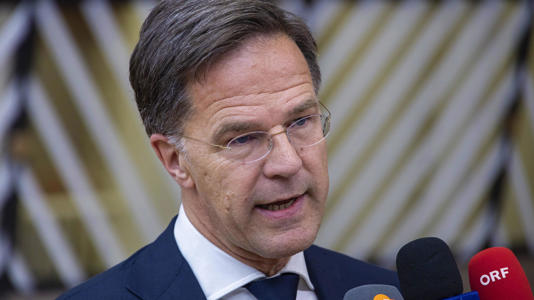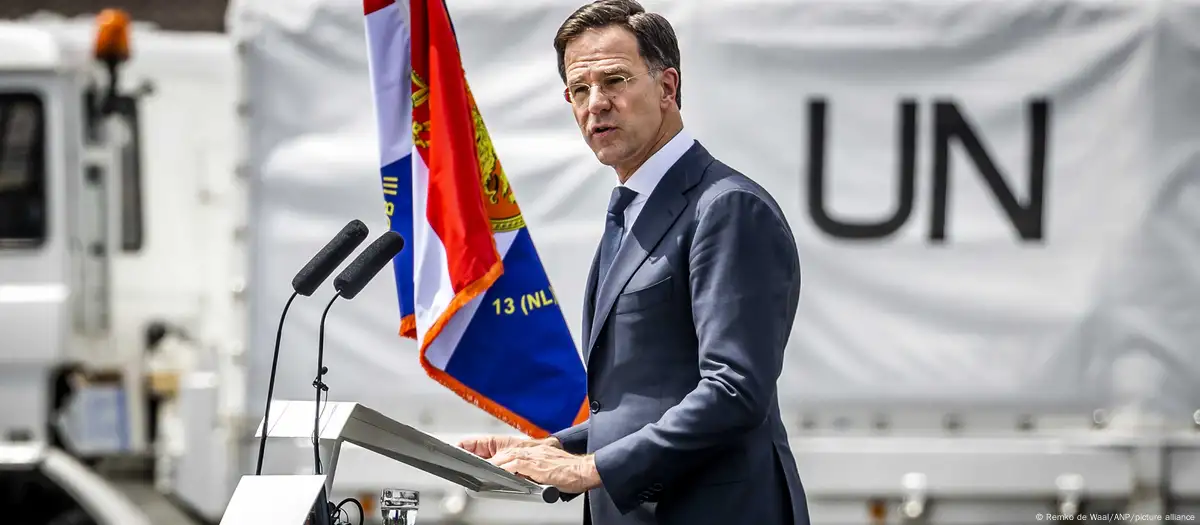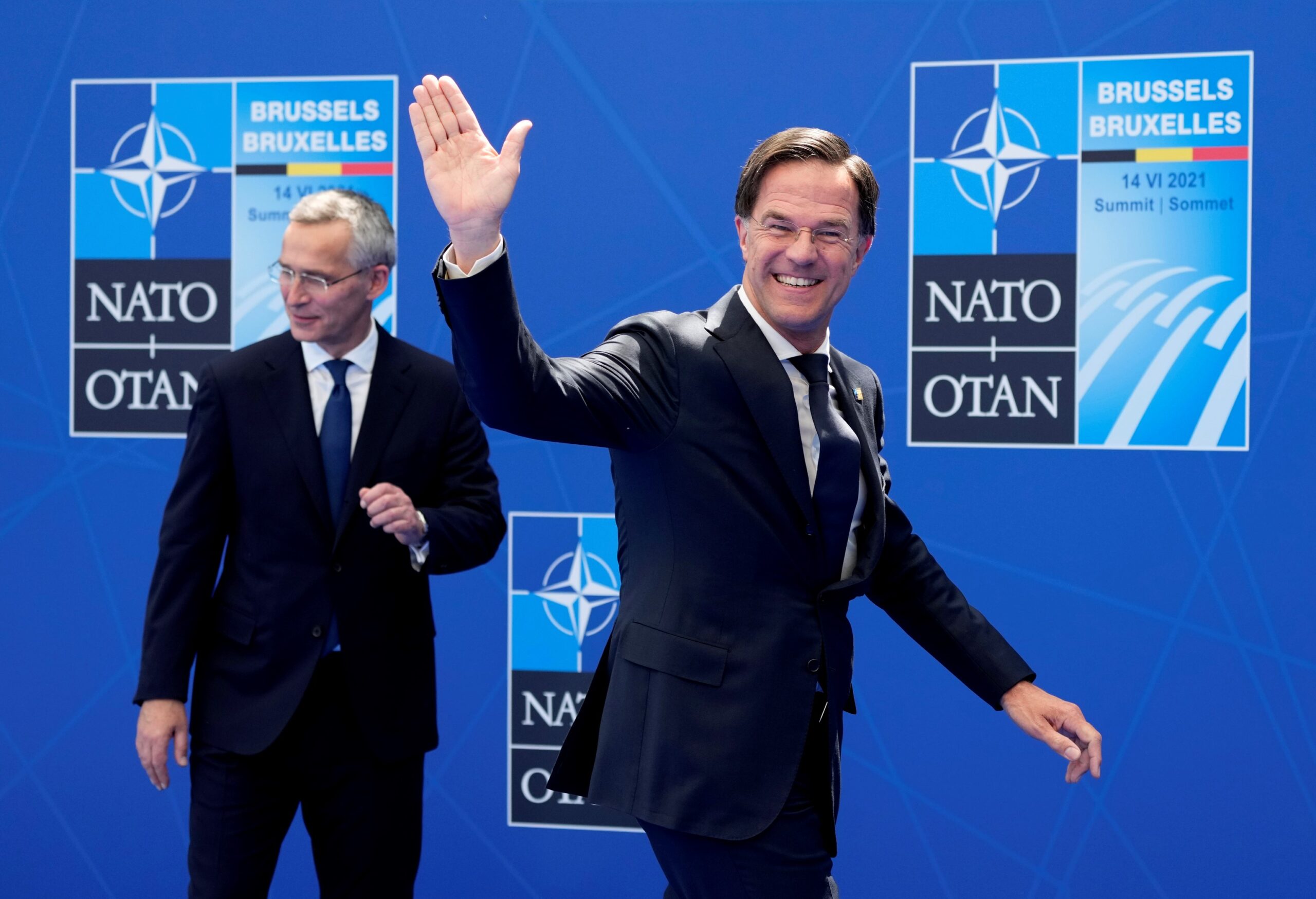By Vera Rodriguez,
NATO, established during the Cold War as a defense against Soviet expansion, faced a crisis of purpose when the Soviet Union collapsed. However, instead of becoming obsolete, the organization demonstrated resilience and adaptability. It transformed from a security provider to a risk management institution, a testament to its survival in changing geopolitical realities.
Russia’s illegal war of aggression against Ukraine has sparked discussions about NATO’s renewed purpose. The Alliance faces a significant threat in Europe again. Moreover, Trump’s potential return to the White House raises questions about collective security. During his mandate, the Republican leader made burden-sharing central in his strategy with NATO. He complained extensively about the non-compliance of European States with a minimum of 2% in defense. He reportedly stated during a 2020 meeting with Ursula von Der Leyen: “You need to understand that if Europe is under attack, we will never come to help and support you. And by the way, NATO is dead. And we will leave, we will quit NATO”.
This year’s appointment of the Secretary-General is pivotal for the organization. The figure’s role has evolved from international representation to significant political influence and leadership, which are crucial for shaping NATO’s agenda and strategic direction. On October 1, 2024, Mark Rutte, former Prime Minister of the Netherlands, will assume the role of NATO Secretary General. His leadership is eagerly anticipated, as he will succeed Jens Stoltenberg and become third in the list of Dutch politicians who have occupied this position.
Previous holders of this office were all (white men) from the United Kingdom, Netherlands, Belgium, Italy, Germany, Spain, Denmark, and Norway. This list might lead one to believe that only Europeans are eligible for the role, despite NATO being a US-led initiative. Indeed, some understand the office as a symbol of European-US cooperation. Only European candidates are chosen. A closer look reveals that only Western Europeans have been nominated to lead. This is not a coincidence, but a result of geopolitical reasoning, the candidate’s state’s history within NATO, and the position’s diplomatic role. Therefore, nationality and previous political presence are vital in appointing the Secretary General of NATO.

Why Mark Rutte, and why the Netherlands, then? Although the explanations are numerous –and sometimes might be overstatements– some of the factors discussed in academia and media outlets are the following. First, his public image is alleged to be primarily focused on consensus-building. With the war of Ukraine on its borders and the need for a more robust defense policy, one of the central topics in NATO is spending. A common strategy is challenging, as the plurality in the organization is manifested through different strategic priorities and the state’s military spending preferences. Following this view, Rutte’s role as a Prime Minister with government coalitions is a solid asset to impulse consensus. Second, Rutte has had significant moments capturing NATO’s attention with his support for Ukraine. Some of his reported achievements include his stance following Russia’s downing of commercial flight MH-17 and his support in supplying Leopard tanks and F-16 fighters to Kyiv.
Moreover, the Netherlands has historically promoted a policy of foreign presence. Although a small state in international relations, Dutch politicians have had a strong sense of global policy. Joining NATO as early as 1949, they were considered a “faithful ally,” and Atlanticism was the cornerstone of its security policy. The Netherlands generally played a “much larger role in international affairs than its size would justify”. Thus, it is no coincidence that three NATO leaders have come from the country. Finally, Mark Rutte is a former Head of State, similar to Jens Stoltenberg. This trend might be justified by former country leaders’ tendency to view themselves as equals rather than servants in International Organizations. This potentially enables effective leadership and good relationships with other NATO members. Generally, their role as Prime Ministers also equipped them with solid networks among senior politicians in member-states.

Although these four factors help explain why Mark Rutte was elected for the role, they might not all weigh the same. He was also a candidate without much opposition. His contestant was Klaus Iohannis, Prime Minister of Romania. However, Iohannis lacked the support from key countries (France or Germany) to uphold his candidacy. There has never been a Secretary General from any country that acceded to the Alliance after the Cold War. Several reasons could explain this east/west divide –perhaps the short national history within the alliance, these countries’ proximity to Russia, and their traditionally harsher stance on their neighbor. In this regard, Rutte’s appointment also seems to follow the historical trend.
The full-scale war on Ukraine has changed many things, and the Alliance must also respond accordingly. Although the organization has regained purpose with a conflict on European grounds, the possibility of Trump’s return to the White House and his threats of withdrawing the US from NATO could lead to the death of this organization. Will Mark Rutte be able to lead the change? Only time will tell. Certainly, the organization’s future will hinge on Rutte’s ability to navigate geopolitical challenges, maintain Alliance unity, and adapt to an evolving security landscape.
References
- NATO Allies select Mark Rutte as next Secretary General. NATO. Available here
- Mark Rutte will be NATO’s next secretary-general. POLITICO. Available here
- Leonard August Schuette. “Why NATO survived Trump: the neglected role of Secretary-General Stoltenberg”. International Affairs, Volume 97, Issue 6. pp. 1863–1881.
- Rutte says NATO ‘cornerstone of collective security’ as he is named chief. ALJAZEERA. Available here
- The Resurrection of Lazarus, or the Second Youth of NATO: The Consequences of the Russian Invasion on NATO. NSA. Available here
- Hendrickson, R. C.. “NATO’s next secretary-general: Rasmussen’s leadership legacy for Jens Stoltenberg”. Journal of Transatlantic Studies, 14(3), 237–251.
- US allies try to ‘Trump-proof’ Nato – but is that even possible? BBC. Available here
- Wessel, R. A.. “The Netherlands and NATO. J. Rainne, Legal Implications of NATO Membership: Focus on Finland and Five Allied States”. Helsinki: Erik Castrén Institute Research Reports, 137-161.




